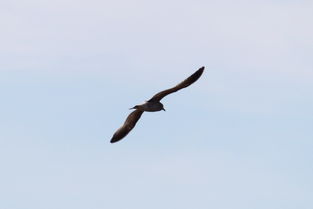The Art of Fishing: How to Master the Techniques for a Successful Catch
Fishing, an ancient pastime that has been cherished by generations, is not just a leisure activity but also a skill that requires patience, knowledge, and a bit of luck. Whether you are a seasoned angler or a beginner looking to cast your line into the water, mastering the techniques of fishing can significantly enhance your chances of a successful catch. In this article, we will delve into various fishing techniques, provide tips on how to improve your skills, and guide you towards becoming a proficient angler.

Choosing the Right Equipment
The first step in mastering the art of fishing is to ensure you have the right equipment. Here’s a breakdown of the essential gear you will need:
Rod and Reel: The choice of rod and reel depends on the type of fishing you plan to do. For freshwater fishing, a spinning rod and reel are usually sufficient, while for saltwater fishing, a baitcasting setup might be more appropriate.
Line: The type of line you use should match the species you are targeting. Monofilament is versatile and works well for a variety of fish, while fluorocarbon is nearly invisible to fish and is excellent for clear water conditions.
Hooks: Hooks come in various sizes and shapes, and it’s important to match the hook size to the bait and the species you are fishing for.
Lures and Baits: Depending on your fishing style, you might use artificial lures or live bait. Live bait can be more effective in certain situations, while lures can mimic the movements of prey and attract fish.
Techniques for Freshwater Fishing
Locating Fish: Understanding where fish are likely to be is crucial. In freshwater, fish often seek out areas with structure, such as rocks, logs, or weed beds, where they can find cover and food.
Presenting the Bait: Once you’ve located potential fish-holding areas, it’s important to present your bait or lure in a way that mimics natural prey. This can be achieved by casting your line and retrieving it in a manner that resembles the movement of the fish’s natural food.
Timing: Timing your strikes is essential. Many fish are more active during certain times of the day, such as early morning or late evening. Observe the behavior of the fish and try to match their feeding patterns.
Techniques for Saltwater Fishing
Trolling: Trolling involves moving your boat at a steady speed and dragging a lure or bait behind it. This technique is effective for catching fish that are feeding near the surface or in the water column.
Bottom Fishing: For fish that live near the bottom, such as snapper or grouper, bottom fishing is the way to go. This involves anchoring your boat and dropping your bait to the bottom, where the fish are.
Fly Fishing: Fly fishing is a unique and challenging technique that involves casting a weighted fly rod and using artificial flies to mimic insects. It requires precise casting and is often used in freshwater or saltwater environments.
Advanced Techniques
Leader and Tippet: For more challenging fishing situations, such as targeting large or toothy fish, it’s important to use a leader and tippet. This is a length of line that connects your main line to your hook, and it can provide additional strength and flexibility.
Reading the Water: Being able to read the water is a skill that comes with experience. Look for areas where the water flow changes, as these can be prime spots for fish.
Weather Awareness: Understanding the weather patterns can help you predict where fish might be. For example, fish often move to deeper water during hot, sunny days to stay cool.
Final Thoughts
Mastering the art of fishing is a journey that requires time, practice, and a willingness to learn. By understanding the basics of equipment, mastering the techniques for both freshwater and saltwater fishing, and being aware of advanced techniques and environmental factors, you can significantly improve your chances of catching fish. Remember, fishing is not just about the catch; it’s about the experience, the connection with nature, and the satisfaction of having honed a timeless skill. Happy fishing!












